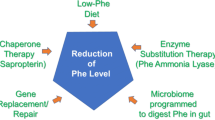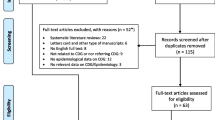Abstract
The pathogenesis of neonatal hyperbilirubinemia has not yet been completely defined in normal and glucose-6-phosphate-dehydrogenase (G6PD)-deficient newborns. The recent identification of a variant promoter in the gene encoding for the bilirubin uridine-diphosphoglucuronosyl-transferase (UGT-1 A) associated with Gilbert's syndrome, allowed us to explore whether the presence of this variant promoter is a risk factor for the development of neonatal hyperbilirubinemia in normal newborns and in association with G6PD deficiency. We found that the variant (TA)7/(TA)7 promoter shows no statistically significant difference in normal or G6PD-deficient newborns developing severe hyperbilirubinemia and in control subjects from the same population. This finding indicates that the variant promoter of UGT-1 A does not contribute to the development of hyperbilirubinemia in the newborn.
Similar content being viewed by others
Author information
Authors and Affiliations
Additional information
Received: 1 July 1998 / Accepted: 10 May 1999
Rights and permissions
About this article
Cite this article
Galanello, R., Cipollina, M., Carboni, G. et al. Hyperbilirubinemia, glucose-6-phosphate-dehydrogenase deficiency and Gilbert's syndrome. Eur J Pediatr 158, 914–916 (1999). https://doi.org/10.1007/s004310051241
Issue Date:
DOI: https://doi.org/10.1007/s004310051241




